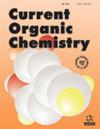Chitosan-incorporated Bioceramic-based Nanomaterials for Localized Release of Therapeutics and Bone Regeneration: An Overview of Recent Advances and Progresses
IF 1.7
3区 化学
Q3 CHEMISTRY, ORGANIC
引用次数: 0
Abstract
The usage of nanoparticles in tissue engineering applications has increased significantly in the last several years. Functional tissues are developed by regulating cell proliferation, differentiation, and migration on nanostructured scaffolds containing cells. These scaffolds provide an environment that is more structurally supportive than the microarchitecture of natural bone. Given its exceptional properties, such as its osteogenic potential, biocompatibility, and biodegradability, chitosan is a good and promising biomaterial. Unfortunately, chitosan's low mechanical strength makes it unsuitable for load-bearing applications. By mixing chitosan with other biomaterials, this drawback might be mitigated. Bone tissue engineering uses both bioresorbable materials like tricalcium phosphate and bioactive materials like hydroxyapatite and bioglass. Alumina and titanium are examples of bioinert materials that are part of these bioceramics. When produced at nanoscale scales, these materials have a larger surface area and better cell adhesion. This review paper will go into great detail on the bioinert, bioresorbable, and bioactive nanoceramics-reinforced chitosan scaffolds for bone tissue engineering.用于局部释放治疗药物和骨再生的壳聚糖包合生物陶瓷基纳米材料:最新进展综述
最近几年,纳米粒子在组织工程应用中的使用大幅增加。功能性组织是通过调节细胞在含有细胞的纳米结构支架上的增殖、分化和迁移而形成的。这些支架提供的环境比天然骨骼的微结构更具结构支持性。壳聚糖具有成骨潜力、生物相容性和生物可降解性等优异特性,是一种很好且前景广阔的生物材料。遗憾的是,壳聚糖的机械强度较低,因此不适合用于承重应用。通过将壳聚糖与其他生物材料混合,这一缺点可能会得到缓解。骨组织工程既使用磷酸三钙等生物可吸收材料,也使用羟基磷灰石和生物玻璃等生物活性材料。氧化铝和钛是属于这些生物陶瓷的生物惰性材料。当这些材料以纳米尺度生产时,其表面积更大,细胞粘附性更好。本综述论文将详细介绍用于骨组织工程的生物惰性、生物可吸收性和生物活性纳米陶瓷增强壳聚糖支架。
本文章由计算机程序翻译,如有差异,请以英文原文为准。
求助全文
约1分钟内获得全文
求助全文
来源期刊

Current Organic Chemistry
化学-有机化学
CiteScore
3.70
自引率
7.70%
发文量
76
审稿时长
1 months
期刊介绍:
Current Organic Chemistry aims to provide in-depth/mini reviews on the current progress in various fields related to organic chemistry including bioorganic chemistry, organo-metallic chemistry, asymmetric synthesis, heterocyclic chemistry, natural product chemistry, catalytic and green chemistry, suitable aspects of medicinal chemistry and polymer chemistry, as well as analytical methods in organic chemistry. The frontier reviews provide the current state of knowledge in these fields and are written by chosen experts who are internationally known for their eminent research contributions. The Journal also accepts high quality research papers focusing on hot topics, highlights and letters besides thematic issues in these fields. Current Organic Chemistry should prove to be of great interest to organic chemists in academia and industry, who wish to keep abreast with recent developments in key fields of organic chemistry.
文献相关原料
| 公司名称 | 产品信息 | 采购帮参考价格 |
|---|
 求助内容:
求助内容: 应助结果提醒方式:
应助结果提醒方式:


